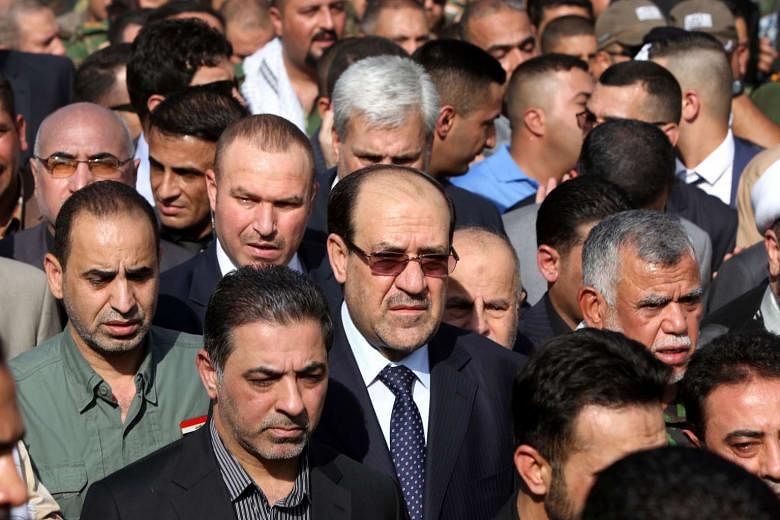BAGHDAD (Reuters) - Iraq's Parliament endorsed a report on Monday calling for the trial of former prime minister Nuri al-Maliki and dozens of other top officials in connection with the fall of the northern city of Mosul to the Islamic State in Iraq and Syria (ISIS) last year, two lawmakers said.
"We voted to send the Mosul report to the judiciary. The judiciary now has the final say," Mr Mahmoud al-Hassan, Parliament legal panel chief, said.
Lawmaker Mohamed al-Karbouli said the vote was taken by a show of hands and passed by a majority.
He said the report was now due to go to the public prosecutor and Prime Minister Haider al-Abadi, who has the right to refer officers for court martial.
The panel's report, the most drastic step yet taken by Baghdad to provide accountability for the loss of nearly a third of the country's territory to the Islamist insurgency, alleges that Mr Maliki had an inaccurate picture of the threat to the northern city because he chose commanders who engaged in corruption and failed to hold them accountable.
There has been no official accounting for how Mosul was lost, or of who gave the order to abandon the fight.
Mr Maliki has accused unnamed countries, commanders and rival politicians of plotting the city's fall.
The report's findings also placed responsibility for the fall of the city on Mosul Governor Atheel al-Nujaifi, former acting defence minister Sadoun al-Dulaimi, former army chief General Babakir Zebari and Lieutenant-General Mahdi al-Gharrawi, former operational commander of Nineveh province, of which Mosul is the capital.
Others accused include Nineveh police commander Major-General Khalid Hamdani, former deputy interior minister Adnan al-Assadi, former army intelligence chief Lieutenant-General Hatam al-Magsousi and three other Kurdish members of the Iraqi security forces.
ISIS' seizure of Mosul, Iraq's second city, in June 2014 as it swept across the Syrian border and declared a modern "caliphate", exposed the failings of a governing system defined largely by ethno-sectarian party patronage.
A year in office, Mr Abadi is seeking to transform a system he complained has spawned corruption and incompetence that deprived Iraqis of basic services while undermining government forces in the battle against ISIS fighters.

